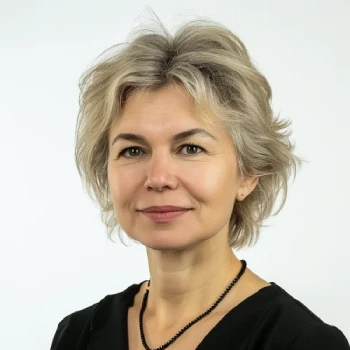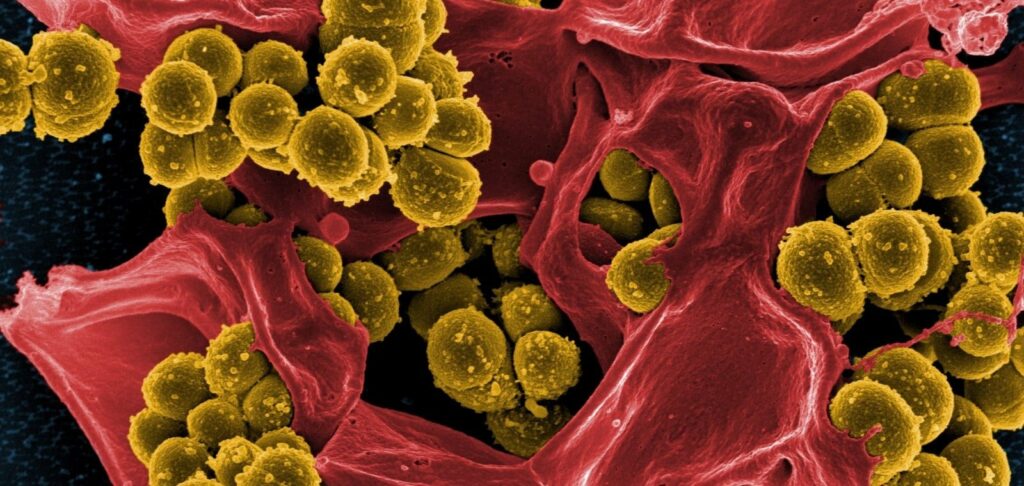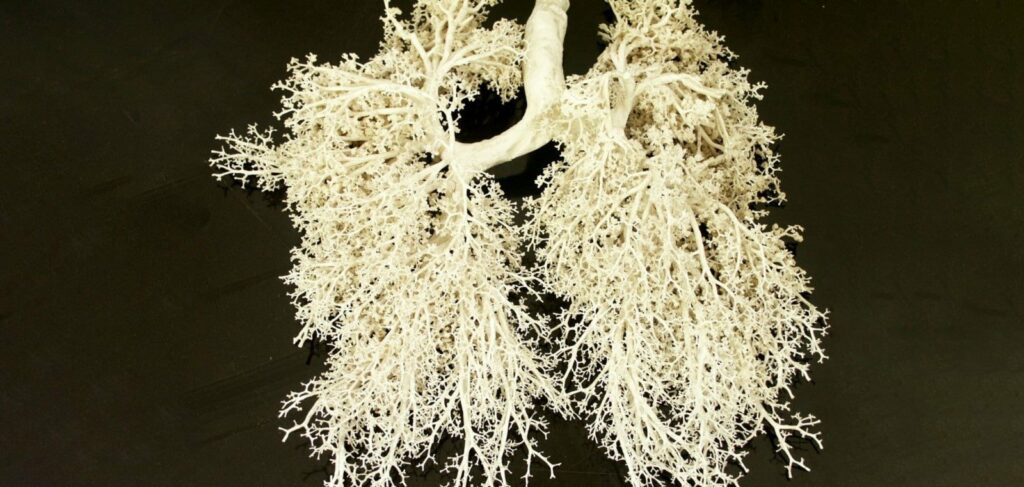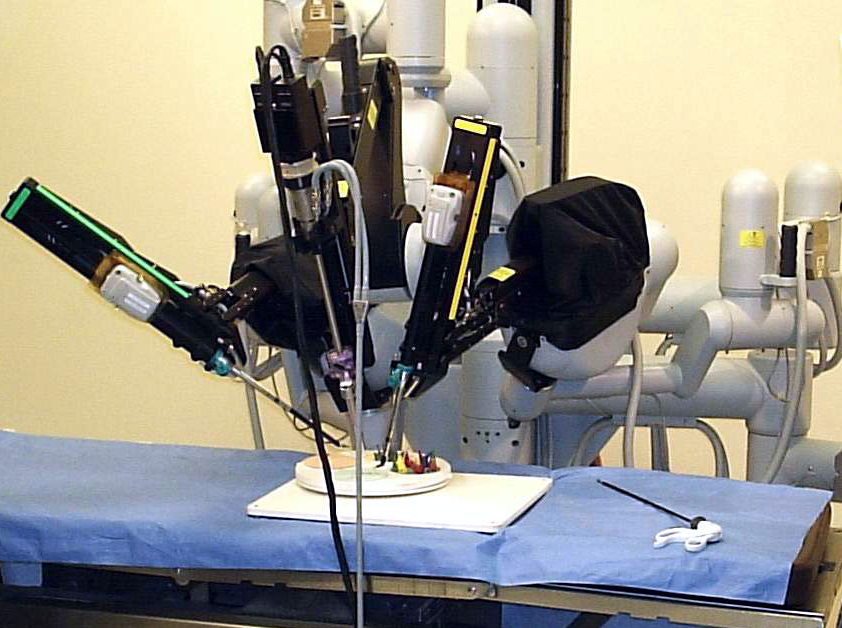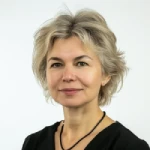
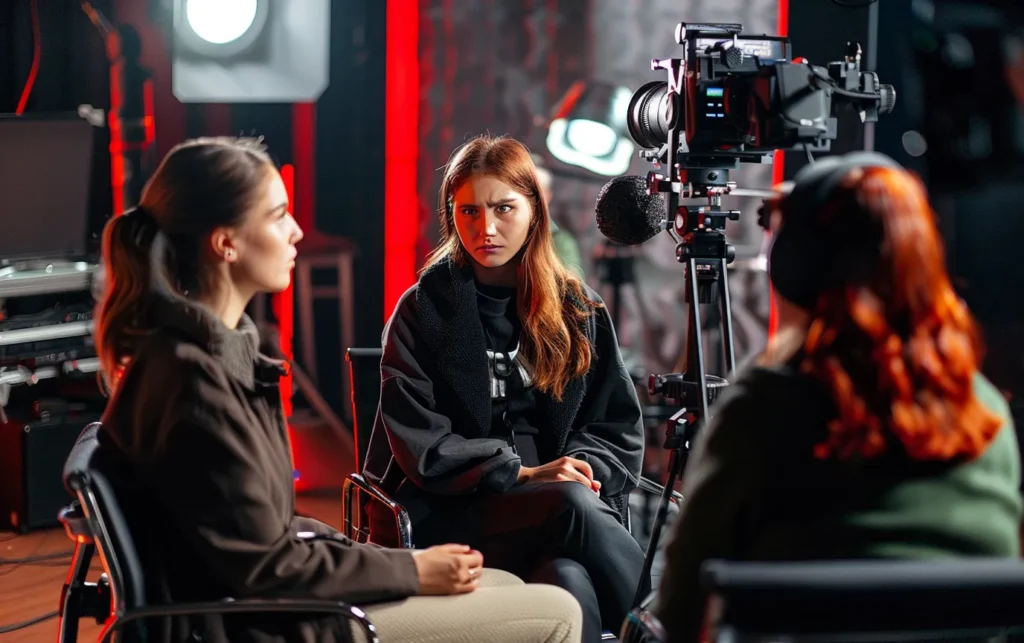
Liudmyla Shupeniuk is a well-known Ukrainian obstetrician-gynaecologist, TV presenter and expert on popular medical TV projects such as I’m Ashamed of My Body on STB TV channel.
She was born in Chernivtsi into a family of hereditary doctors. Liudmyla followed in her parents’ footsteps and, after graduating with honours from Chernivtsi Medical University, became a practicing obstetrician-gynaecologist.
Today, Liudmyla Shupeniuk is a doctor of the highest category with more than 27 years of experience. She works as a leading obstetrician-gynaecologist at two Kyiv clinics – Clinic Nova and an antenatal clinic;
In 2014, Liudmyla started working with television, becoming one of the leading experts of the project I’m Ashamed of My Body, along with her colleagues Kateryna Bezvershenko and Valerii Oslavskyi. This programme brought her great popularity among viewers.
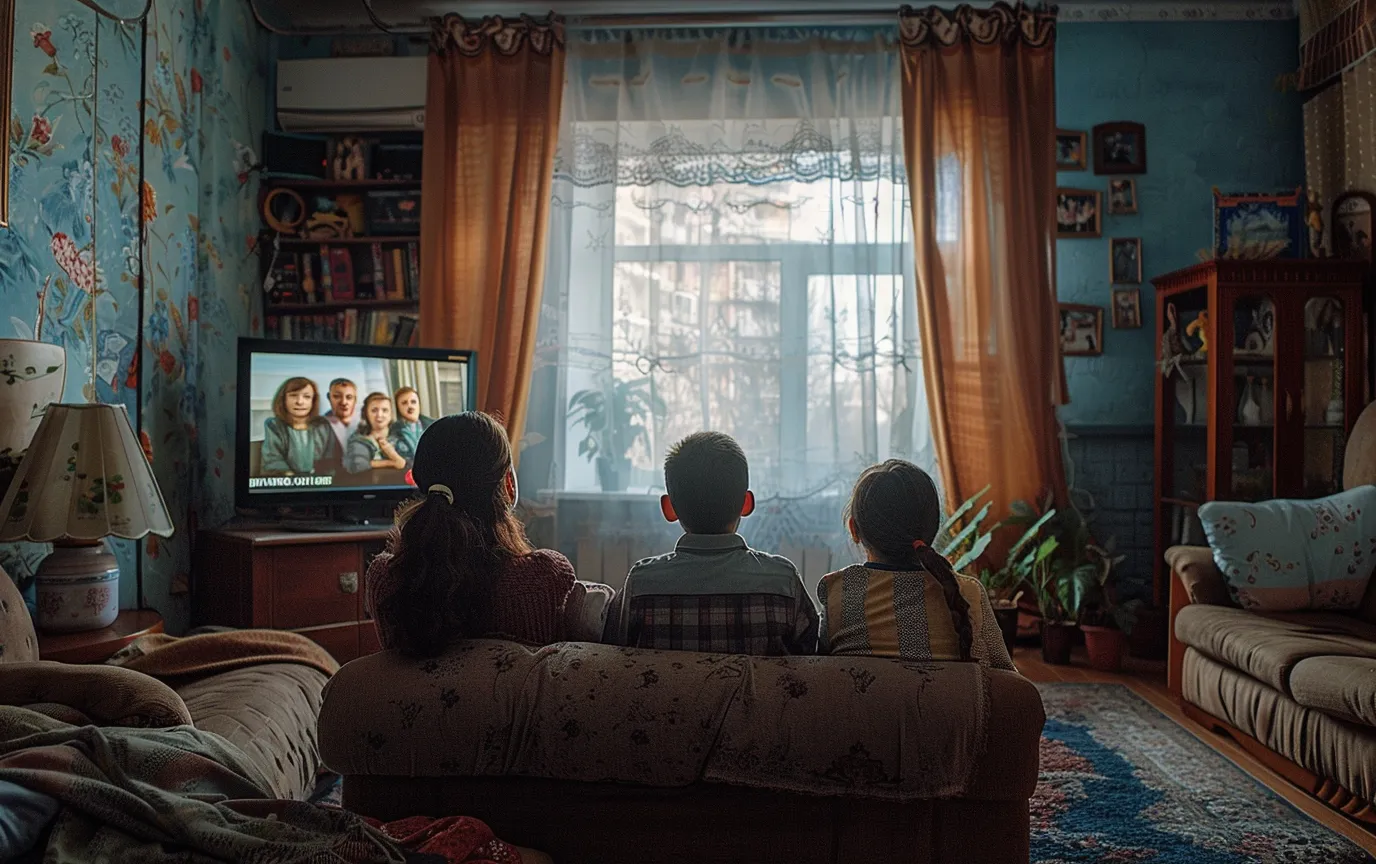
Despite her popularity, Liudmyla admits that she still can’t get used to it, especially when her fellow doctors come up to her for an autograph;
In an interview, she said that she agreed to take part in the TV project to overcome her fear of public speaking;
Liudmyla is married to psychologist Orest Shupeniuk, who also frequently appears on Ukrainian television;
It is interesting that in addition to two doctors, their family now includes two psychologists – the husband and daughter Galina, who followed in her father’s footsteps.
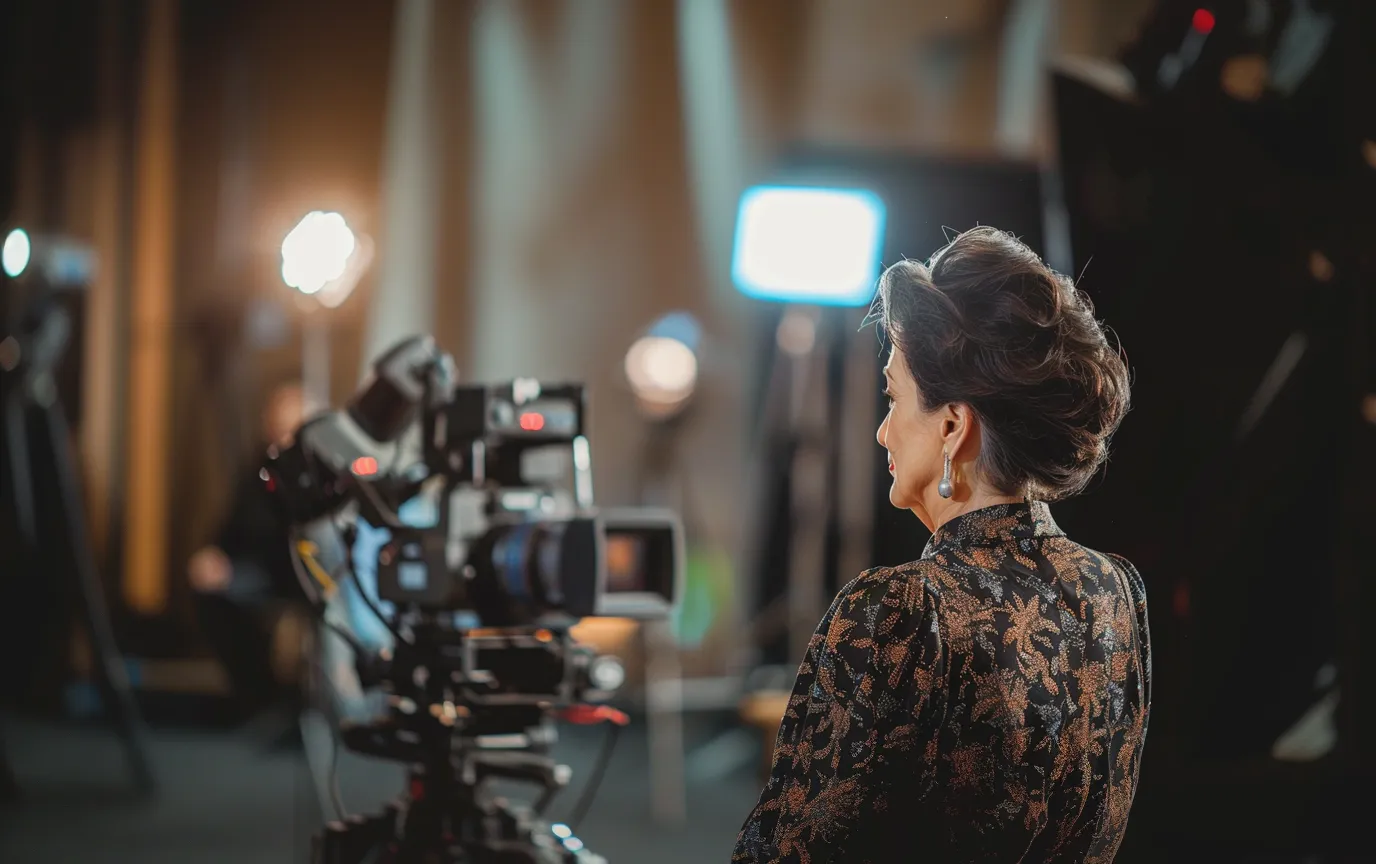
Liudmyla Shupeniuk, a well-known obstetrician-gynaecologist and expert on the medical TV project I’m Ashamed of My Body (STB TV channel), has become a favourite with many viewers.
In an interview, she told us why she still can’t get used to her fame and how two psychologists appeared in her family
“Over the years, immunity is developed, but some things are very painful”
In one of your recent programmes, you burst into tears. It’s not often that we see you like this…
Indeed, this rarely happens, at least on camera. But we are all human beings, and the stories of the programme’s heroes cannot but touch us. I couldn’t hold back my tears while listening to the story of six-year-old Irina’s mother, who suffers from progeria.
This is a rare genetic disease that causes organs to age very quickly. There are only a hundred people in the world with this diagnosis, and only one girl in Ukraine. And unfortunately, this disease is currently untreatable.
When you agreed to take part in the project, did you think it would be so difficult emotionally?
My profession means that I often come across human tragedies. To be honest, even at the workplace, I don’t always manage to hold back tears.
You are not a machine! Over the years, of course, you develop some kind of immunity, but some things still hit you hard.
Do you follow the fate of the heroes of the programmes?
We correspond with some of them on social media. But not with all the project participants. Most often, patients themselves do not see the need for this. Or they don’t want to be disturbed.
You are often asked, but still: which patient impressed you personally?
Of course, 26-year-old Karina Rubleva is a woman who was diagnosed with stage four breast cancer and pregnancy at the same time.
This story left no one indifferent! “I have never seen such a tumour as long as I have been a doctor. I experienced a huge internal tension when I touched the stone breasts of such a young woman.
In those moments, I was torn apart by despair: she was not living somewhere in the desert, she was a nurse by profession, she had a loved one.
How could this be allowed to happen? It was a shock for me! Well, she was afraid to go for the research herself, but her family? Why didn’t they convince her?
In your opinion, why do Ukrainians procrastinate when it comes to visiting doctors?
I recently came across an interesting study. It turns out that people’s top fears are fear of public speaking, followed by fear of going to the doctor, and fear of death. It seems to me that if doctors and patients developed friendly relations, if they met just to talk and get checked, everything would be different.
Women would definitely visit gynaecologists much more often. Returning to Karina’s story: she had a tumour before we met, and was sent to the oncology centre for a consultation, but she didn’t go for nine months because she was afraid. She hoped that everything would pass…
What if she hadn’t come to our project? To be honest, she came to us too late, and her situation was not easy. She underwent surgery, chemotherapy, and everything seemed to go well, but such advanced cancer is very difficult to cure.
The woman has two children: an older girl and the one she gave birth to with us. It seems to me that everyone who has watched the stories about her and feels that they need to see a doctor will definitely not put it off. And this is one of the missions of our project.
In which story are you most pleased with the outcome?
In general, I am satisfied with the results of all patients who have come to us. And in particular… This story has not yet been told, it will only be shown.
A young woman with a miscarriage applied to us for the project. She had already had four miscarriages, and her fifth pregnancy was ectopic. And fortunately, Lyuda recently gave birth successfully with our help.
For me, the most rewarding thing in my profession is a normal pregnancy and the birth of a healthy child. That’s probably why I went into midwifery. No other medical field gives you the opportunity to see the results of your work so quickly.
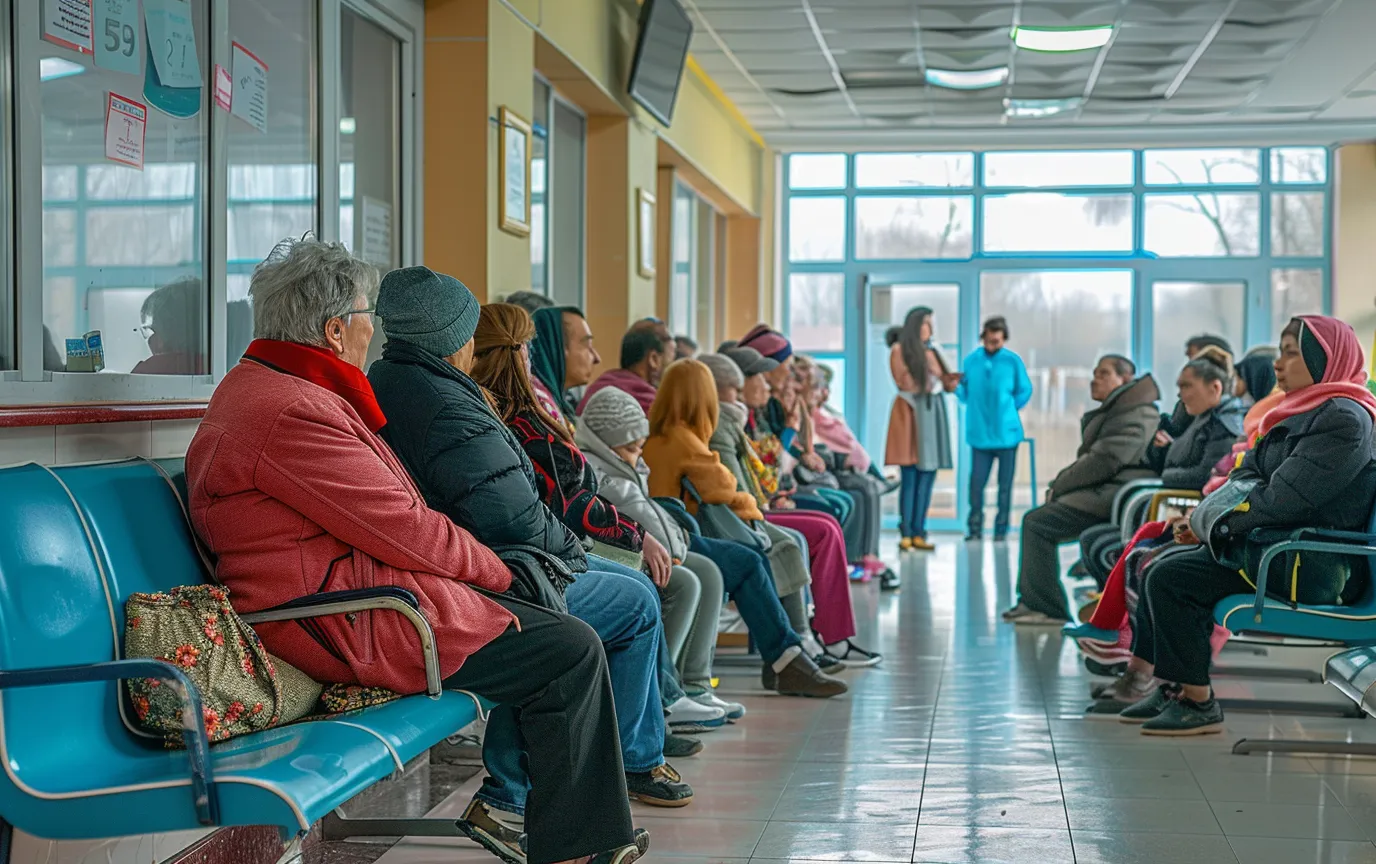
“I am always on the side of women, because life is unfair to us: from painful periods to childbirth, and “
In your interviews, you often say that “your fate was sealed” because your family are all doctors…
My parents are doctors. My father later switched to scientific work, he was engaged in endocrinology. My sister is a pediatric gastroenterologist. I am the only obstetrician-gynecologist in my family.
As for me, this is the most positive thing in medicine. In addition, for all my love for men, I am always on the side of women and somewhere in my heart I am a feminist. I have always wanted to help them. After all, life is fair to us: from painful periods to childbirth.
Is your daughter Galia’s fate also decided?
No, she didn’t. Of course, the question of whether she should go into medicine was raised at home. But in this profession, to become a good specialist, you need years and years of study, and then practice.
And you have to keep learning all your life. I don’t think she was ready to wait that long. We talked, sorted it all out, and she decided to follow in her father’s footsteps. Now we have two psychologists in our family.
Psychology and medicine complement each other well. The former treats the soul, the latter treats the body. Do you talk about work at home?
You are absolutely right – these are two sides of the same coin. The third part of any disease is psychological problems, not medical ones. I talk a lot about this with my husband. He often helps me make the right decisions in my work.
Do you talk about medicine at family celebrations?
That’s all we talk about! My sister is now interested in parasitology.
And her daughter constantly reminds her: “Mom, are you talking about worms at the table again?” And we all react to this calmly: it’s interesting! I will never forget how we once celebrated a celebration as a team.
And all evening we were discussing diseases! And then suddenly the husband of one doctor asked politely: “Let’s talk about light bulbs now!” It turned out that he was an electrician.
And that’s when we realized that sometimes we need to take a break from work.
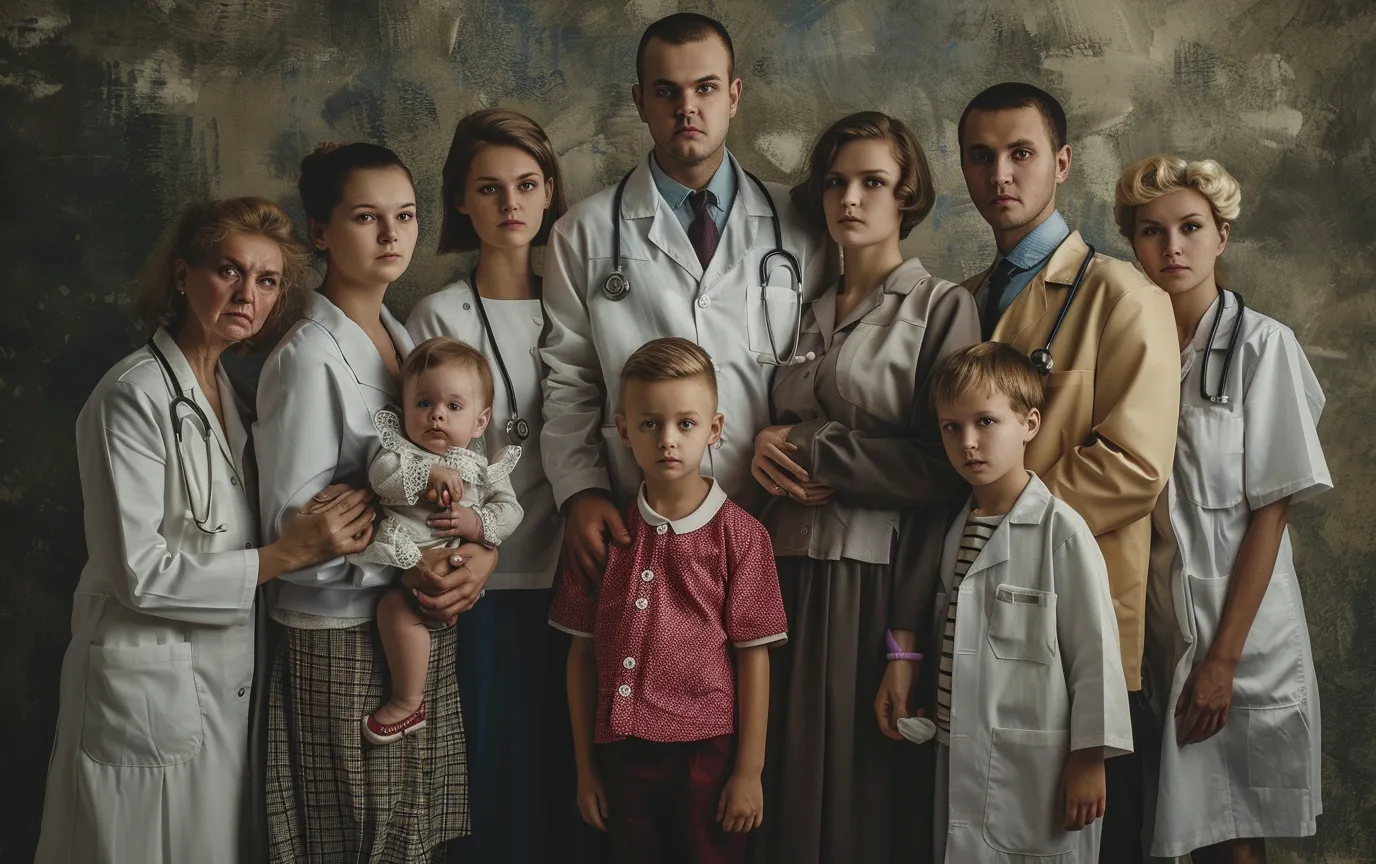
“Tick, show me what I signed up for!”
Do your relatives watch your programmes?
My mother is my most ardent supporter. She cares more about the fate of the characters than all of us put together! She’s also very interested in how I look in the frame.
Then she says to me: “Here you were a little tired, and here you look good!” or “Your hairstyle looks better in the latest episodes!” My whole family watches the programme.
We have a tradition – every Thursday, my husband, daughter and I sit down in front of the TV. But it is not easy for Galya to watch the scenes of surgeries. She says: “Mum, if it wasn’t for your programme, I wouldn’t watch it!”
Have you seen foreign analogues of the program?
After signing the contract with the TV channel, I came home and asked my daughter: “Halochka, show me what I signed up for.” Then we watched a few programmes.
Of course, it’s dynamic and interesting, but it looks more like a TV show. I think one of the keys to the success of our project is that its hosts are not actors.
Everything here is real. More life, I believe. I am also an incredible patriot of our medicine.
I see the progress my colleagues are making. And I am glad that I have the opportunity to talk about it. We need to talk about this so that people don’t think that only abroad there are good specialists.
There were several difficult cases in the project, and we were rejected by clinics abroad. But ours took us on!
What fears and phobias did you overcome with the help of the project?
It’s hard to believe now, but I was very afraid to speak in front of an audience. I used to do student theatre and KVN, but I didn’t do much public speaking.
In many ways, I agreed to take part in the project to prove to myself that I could not be self-conscious in front of the cameras. After all, until you do it, you don’t understand whether you can or not.
I went and did it! It was a victory for me. And when they called me and said they were inviting me to the second season, I was incredibly happy!
From time to time, I have a fear of incompetence. I have never encountered so many diagnoses that I saw on the project in my regular work. Sometimes people come with diseases that I’ve only read about in a book.
You look up articles on the Internet, search for what is being written in the world. This, by the way, is a great incentive to develop in different directions.
One of the features of your project is the educational medical experiments that you conduct in public places. What episode was unexpected?
For all three of us, it was a very difficult experiment when we taught people how to go to the toilet on Obolonska embankment. My part was about how to wipe your bum properly.
And just imagine, a reputable doctor with experience and a huge number of patients needs to talk to strangers about things that you don’t discuss even in a narrow circle of relatives.
It was very difficult to step over myself. And people’s reactions were different. Some responded happily, while others could snort. Now we are used to any reaction.
And you know, sometimes I look at people who react harshly to our offers to participate with pity. You have to be so closed and constrained to not be able to talk about a topic related to health!
Do you meet with your colleagues Valery Oslavsky and Kateryna Bezvershenko outside of work?
We have a very good team! We are friends, and this is also an asset of the project, for which I am very grateful. We meet both Katya and Valera outside of work, we can go out together.
But, unfortunately, this is extremely rare. If I come to Odesa, Valera will always meet me and take me in. We go to training seminars together with Katushka.
“I definitely have to go somewhere every three months“
How do you like to spend your free time?
I must go somewhere every three months! It can be a scientific conference or a family holiday. On weekends, I always visit my parents. Thank God, they are alive and well and not far away – 40 kilometres from Kyiv.
By the way, they moved after my sister and me from Chernivtsi. They said that if their two daughters are there, why would we stay here? Now they are in their 80s, but at that time they were 68 years old.
They sold everything and bought a house near Kyiv. And dad still got a job! Despite their venerable age, they are young inside.
They celebrate their birthdays in the mountains or on the Dniester – they also follow us. Sometimes they sigh with a fake sigh – my mother is reluctant to leave her comfort zone, but then, when the whole family gathers for a trip, they really come alive.
How do you feel about the fact that people often come up to you for an autograph on the street now?
I still can’t get used to it! Especially when colleagues come to me. I am the same doctor as they are, maybe I just have more publicity. That’s all. When doctors approach me with a request: “Can I take a picture with you?”, I feel a little embarrassed. In general, fans are different, sometimes unexpected in their manifestations.
For example, when I come to rest with my family and a person comes up to me and starts talking about his illness, it’s unpleasant. Or I’m without make-up, tired, in a bad mood, and they start taking pictures of me without asking… But in general, I meet more positive people. I generally treat people very well.
Even after fraudsters sell various “miracle cures” on the Internet on your behalf?
This, of course, makes me angry! You earn your credibility throughout your life. Long before the project, we (Lyudmyla’s colleagues also became the “faces of medicines” against fraudsters. – ) were successful doctors, we were trusted and trusted – and here someone is using our names for profit!
It’s impossible to influence these people. Our channel tried, but failed. When patients come to me and say: “You told me about it on the Internet, I bought…”, I feel so uncomfortable. I have to justify myself once again: “I have nothing to do with it”.
The war has accelerated disease progression and made oncology younger
How has your work changed since the start of the full-scale invasion?
The beginning of the war was a huge shock for everyone, including medical professionals. As Lyudmila recalls:
“In the first months we felt complete stupor and moral paralysis. We couldn’t get to work, and our whole life went online. I had to come to terms with it somehow because I just hate online counseling!”
There were extremely challenging situations, like when young nurses would call asking for advice on how to deliver babies when pregnant women couldn’t reach maternity hospitals.
“It was a nightmare. I understood that I had to not only get myself together, but also support others,” Lyudmila shares.
About a month after the invasion began, she went to Chernivtsi to volunteer, treating displaced pregnant women.
This experience made her appreciate even more the well-equipped clinic and access to necessary medications she had created in Kyiv.
Two months into the war, Lyudmila resumed in-person work at her clinic as patients started returning.
“It was difficult, because sometimes doctors couldn’t get to the clinic, but a person gets used to everything. We experienced both blackouts and falling debris outside the window during consultations.”
What health issues have become more prevalent among women during wartime?
Lyudmila has observed several concerning trends:
“Oncology has become younger. The number of breast and cervical cancer cases has increased. When I diagnose cervical cancer in a 25-year-old girl, it’s very sad.”
She’s seeing more cases of aggressive fibroids, even in young women, as well as endometriosis in patients under 35.
“When we’re stressed, we gain weight. Being overweight is a trigger for 13 types of cancer,” Lyudmila explains.
Weight gain combined with hormonal imbalances, disrupted sex lives, and eating disorders is leading to numerous health issues.
“Sometimes diseases progress so quickly that I start to wonder if I’m dealing with cancer,” she admits.
“Colleagues confirm that today diseases behave very aggressively. Oncologists are seeing both an increase in cancer cases and more advanced stages at diagnosis.”
What’s your advice to women regarding health screenings?
“We’re all used to annual check-ups, because usually diseases don’t develop so quickly. But today I see a tendency for aggressive progression of diseases. This must be kept in mind,” Lyudmila emphasizes.
She strongly encourages women not to delay preventive care and screenings, even during these difficult times.
“You can speculate endlessly about relevance, but let’s be honest – we don’t know how long the war will last. This is our life, our health, and it’s important to take care of ourselves.”
Regular Medical Check-ups
Lyudmila sees the return of Ukrainian women to regular medical check-ups as an encouraging sign.
“What we are doing today is our contribution to the fact that we are invincible. This is our inner victory over the situation.”
Despite all the challenges, she remains committed to women’s health:
“Today, I appreciate the opportunities even more, and even more so the people who continue to trust me with their own health.
When patients came to the first appointments after the start of the great war, we even set aside 30 minutes for hugs, tears, and such important ‘How are you?’”

